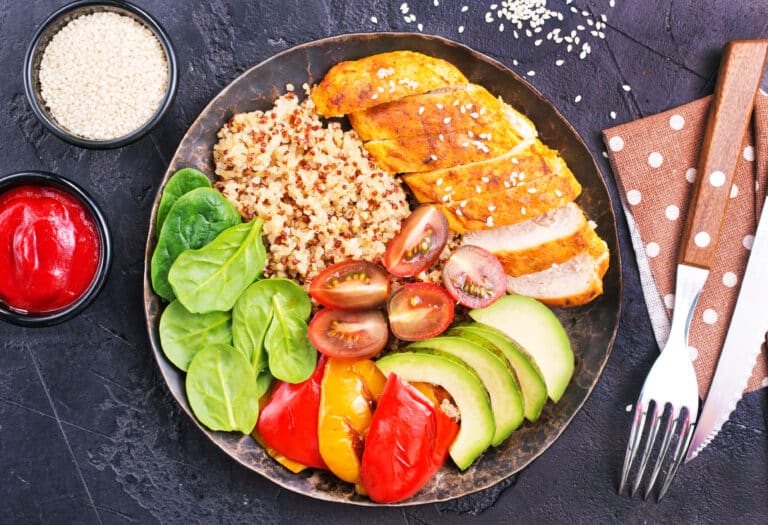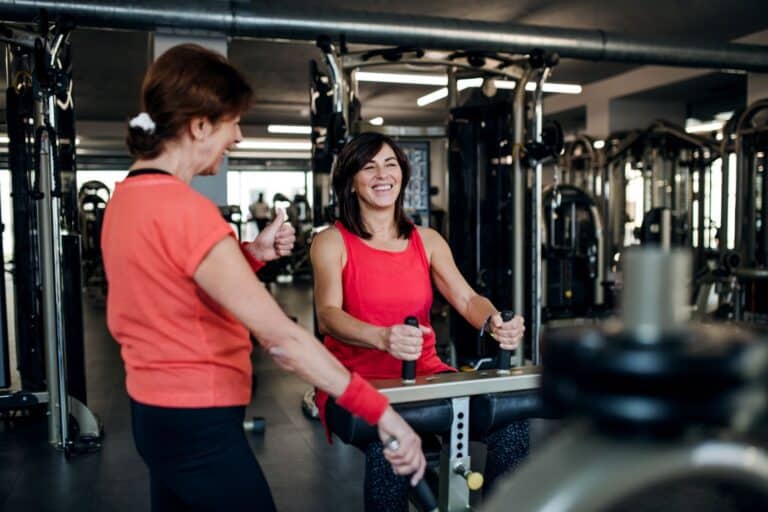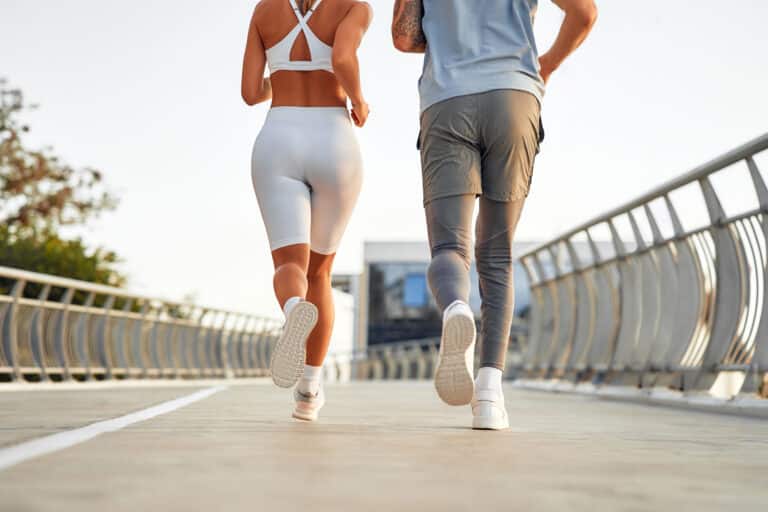Why Hydration Matters
Hydration is often overlooked, but it plays a critical role in overall health, performance, and recovery. Your body is made up of about 60% water, and every single cell relies on it to function properly.
From digestion and metabolism to muscle function and brain performance, staying hydrated impacts nearly every system in the body. And when you add exercise and sweat loss into the equation, hydration becomes even more important.
In this guide, we’ll break down:
✅ Why hydration is so important
✅ Different types of hydration and fluid sources
✅ Daily hydration recommendations
✅ Hydration strategies for training and workouts
Let’s dive in!
The Science of Hydration: What Water Does for Your Body
💧 Regulates body temperature – Water helps dissipate heat through sweat, keeping you cool.
💧 Transports nutrients & oxygen – Your blood is mostly water, helping nutrients and oxygen reach your muscles and organs.
💧 Boosts metabolism & digestion – Water is key for breaking down food, absorbing nutrients, and preventing constipation.
💧 Improves brain function – Even mild dehydration (1-2% loss of body weight) can reduce focus, memory, and mental performance.
💧 Supports muscle recovery – Water is necessary for protein synthesis, nutrient absorption, and reducing soreness.
💧 Maintains joint health – Proper hydration keeps joints lubricated and reduces risk of injury.
💧 Prevents fatigue & cramping – Dehydration leads to muscle cramps, dizziness, and overall fatigue.
Types of Hydration: It’s More Than Just Water
Hydration doesn’t only come from water—you also get fluids from electrolytes, certain foods, and other beverages.
1. Plain Water (Best for daily hydration)
- The simplest and most effective way to stay hydrated.
- Best for low-intensity activities, rest days, and everyday hydration.
- If you dislike plain water, add lemon, lime, cucumber, or fruit for natural flavor.
2. Electrolyte Drinks (Best for workouts & hot climates)
- Electrolytes (sodium, potassium, magnesium, calcium) help retain water, balance fluids, and prevent muscle cramps.
- Ideal for intense workouts, endurance training, or when sweating heavily.
- Examples: Coconut water, sports drinks, electrolyte powders (like LMNT or Liquid I.V.).
3. Herbal Teas & Infused Water (Best for mild hydration & variety)
- Herbal teas (like chamomile, peppermint, or hibiscus) provide hydration plus antioxidants.
- Infused water (citrus, berries, mint, cucumber) adds flavor and vitamins.
4. Milk & Dairy Alternatives (Best for post-workout recovery)
- Milk is 80-90% water, plus it provides protein, calcium, and electrolytes.
- Chocolate milk is a great recovery drink due to its carb-protein ratio.
5. Fruits & Vegetables (Best for additional hydration)
- Many fruits and veggies have high water content and add essential vitamins/minerals.
- Top hydrating foods: Watermelon (92% water), cucumbers (96%), oranges (86%), strawberries (91%), celery (95%).
6. Caffeinated Beverages (Moderation is key)
- Coffee and tea can contribute to hydration, but excess caffeine can be dehydrating.
- Stick to 1-2 cups per day and pair with extra water intake.
How Much Water Do You Need? Daily Hydration Guidelines
General guidelines recommend:
➡️ Men: ~3.7 liters (125 oz) per day
➡️ Women: ~2.7 liters (91 oz) per day
💡 A simpler rule is to drink half your body weight in ounces of water per day.
(Example: If you weigh 180 lbs, aim for ~90 oz of water daily.)
🔹 Thirst is NOT always a reliable indicator of dehydration—by the time you feel thirsty, you’re already slightly dehydrated.
🔹 A good way to check hydration: Your urine color!
✅ Pale yellow = Well-hydrated
❌ Dark yellow = Dehydrated
❌ Clear = Overhydrated (yes, it’s possible to drink too much water!)
Hydration for Training & Workouts
Your water needs increase significantly when you’re active. Sweat leads to fluid and electrolyte loss, which can negatively impact performance and recovery.
💦 BEFORE Training:
- Drink 16-20 oz of water about 1-2 hours before your workout.
- If working out first thing in the morning, drink a full glass of water upon waking.
💦 DURING Training:
- For moderate workouts (<60 minutes): Sip 8-10 oz of water every 20 minutes.
- For intense workouts (>60 minutes): Use electrolytes to replace lost sodium and potassium.
💦 AFTER Training (Recovery Phase):
- Drink 20-24 oz of water per pound of body weight lost through sweat.
- Rehydrate with electrolytes if you did a long or intense workout.
🏋️ Hydration Tips for Strength Training
- Dehydration reduces muscle strength, endurance, and recovery speed.
- Drink throughout the session, not just at the end.
🏃 Hydration Tips for Endurance Training
- If running or cycling longer than an hour, drink sports drinks or electrolyte-infused water.
- Drink BEFORE you feel thirsty—delayed hydration reduces performance.
🌞 Hydration Tips for Hot & Humid Conditions
- Heat increases sweat rate, meaning you’ll lose more fluids and electrolytes.
- Use electrolyte-rich drinks to replace lost sodium and prevent cramping.
🥶 Hydration for Cold Weather Workouts
- Cold air reduces thirst sensation, but you’re still losing fluids through sweat and breathing.
- Keep sipping water throughout the session, even if you don’t feel thirsty.
Hydration Mistakes to Avoid
🚫 1. Drinking only when thirsty – Thirst lags behind actual hydration needs.
🚫 2. Relying too much on caffeine or sugary sports drinks – Water should be your primary fluid source.
🚫 3. Ignoring electrolytes for long workouts – Water alone isn’t enough if you’re sweating heavily.
🚫 4. Overhydrating before bed – Drinking too much late at night leads to disrupted sleep.
🚫 5. Drinking too little in winter – Hydration is just as important in cold weather as in hot.
Key Takeaways: Stay Hydrated, Stay Strong!
💧 Everyday Life Hydration:
✅ Drink half your body weight in ounces of water daily.
✅ Eat hydrating foods like fruits and veggies.
✅ Use electrolytes if sweating heavily or in hot weather.
💪 Workout Hydration:
✅ Drink 16-20 oz before exercise.
✅ Sip 8-10 oz every 20 minutes during training.
✅ Rehydrate with electrolytes after intense sessions.
🚀 Hydration is a game-changer for energy levels, performance, and recovery. Make it a habit, and your body will thank you!



